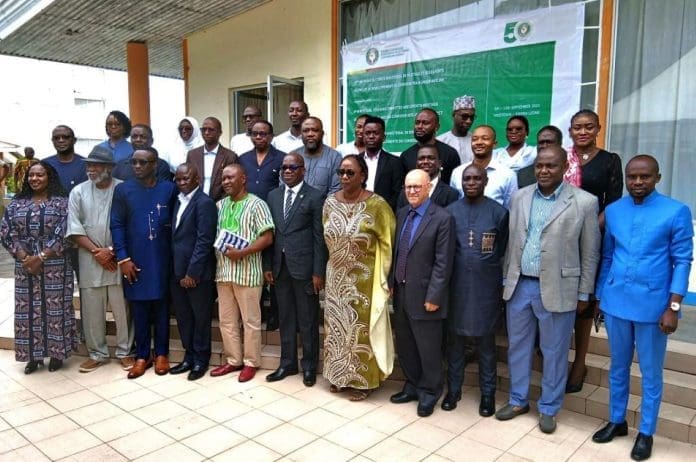EXPERTS PREPARE FOR THE 4TH MEETING OF THE MINISTERIAL STEERING COMMITTEE FOR THE PRAIA-DAKAR-ABIDJAN CORRIDOR DEVELOPMENT PROJECT
To review the final optimal route and economic viability of the Praia-Dakar-Abidjan motorway development project in each of the seven (7) member states of this corridor, as well as the results of the feasibility study and the financing and management model for the Praia-Dakar maritime link, to prepare for the next stages of the project. This is one of the objectives of the project experts’ meeting that opened on Tuesday, the 9th of September 2025, in Freetown, Sierra Leone.
This three-day meeting will enable participants to assess the corridor route, considering the current state of the road network and current and future rehabilitation and construction programmes in the corridor area. It will also be an opportunity for participants to confirm the alignment of the Praia-Dakar-Abidjan corridor not only with each member state but also as a whole, as a single entity.
The preparation of the terms of reference for the technical, economic, environmental, and social studies of the project, the preliminary estimate of the approximate cost of the required studies, the review of the financial and economic analysis, the calls for tenders, and the bids for the establishment of the Praia-Dakar maritime link are also on the agenda.
This meeting also aims to formulate recommendations for ministers responsible for road infrastructure and transport at their 4th steering committee meeting, which will be held on 12 September 2025, also in Freetown.
As a reminder, it was in 2018 that the heads of state and government of the member states of the Praia-Dakar-Abidjan corridor agreed to make this corridor an integrated economic hub, serving both as a catalyst for exponential development and as a regional integration programme.
To this end, they created a steering committee composed of ministers responsible for road infrastructure, which is supported by a committee of experts composed of engineers and project managers from the ministries of public works and transport of the corridor’s member states.
At the opening of the meeting, John Azumah, Resident Representative of the Economic Community of West African States (ECOWAS) Commission in Sierra Leone, urged committee members to actively participate in technical discussions and formulate relevant recommendations for approaching donors with a view to implementing the project. He expressed his gratitude to the directors and engineers of the member states of the Praia-Dakar-Abidjan corridor development project for the significant progress they have made in completing the preliminary technical studies.
He thanked the African Development Bank for financing the initial phase of the project studies and invited other financial partners to continue supporting the project.
Like him, the Director General of the Ministry of Public Works and Public Assets of Sierra Leone and Chairman of the Committee of Experts of the Member States of this project, Paul Bockarie, also thanked the aforementioned partners.
He emphasised the importance of this project for the government and people of Sierra Leone.
“For Sierra Leone, the corridor is not just a line on a map; it is a platform for employment, trade, travel safety, and regional competitiveness. It connects our people to opportunities, reduces logistics costs for our businesses, and links our ports, growth hubs, and border communities to regional value chains,” said Paul Bockarie.
It should be noted that the Praia-Dakar-Abidjan corridor motorway development project is an essential part of ECOWAS’s broader strategy to facilitate the free movement of people and goods within the community, promote economic development, reduce transport costs, and stimulate regional trade.
Considered one of the essential steps towards a more integrated and prosperous West Africa, this regional corridor, which aims to connect the capitals and port areas of eight ECOWAS member states, aims to integrate several modes of transport: road, rail, and maritime. These states are Cabo Verde, Côte d’Ivoire, Gambia, Guinea, Guinea-Bissau, Liberia, Senegal, and Sierra Leone.
Through this project linking Dakar to Abidjan via Banjul, Bissau, Conakry, Freetown, and Monrovia, ECOWAS plans to turn the Praia-Dakar-Abidjan corridor into a genuine West African economic hub, driving economic development and regional integration.
Source: newsghana.com.gh











